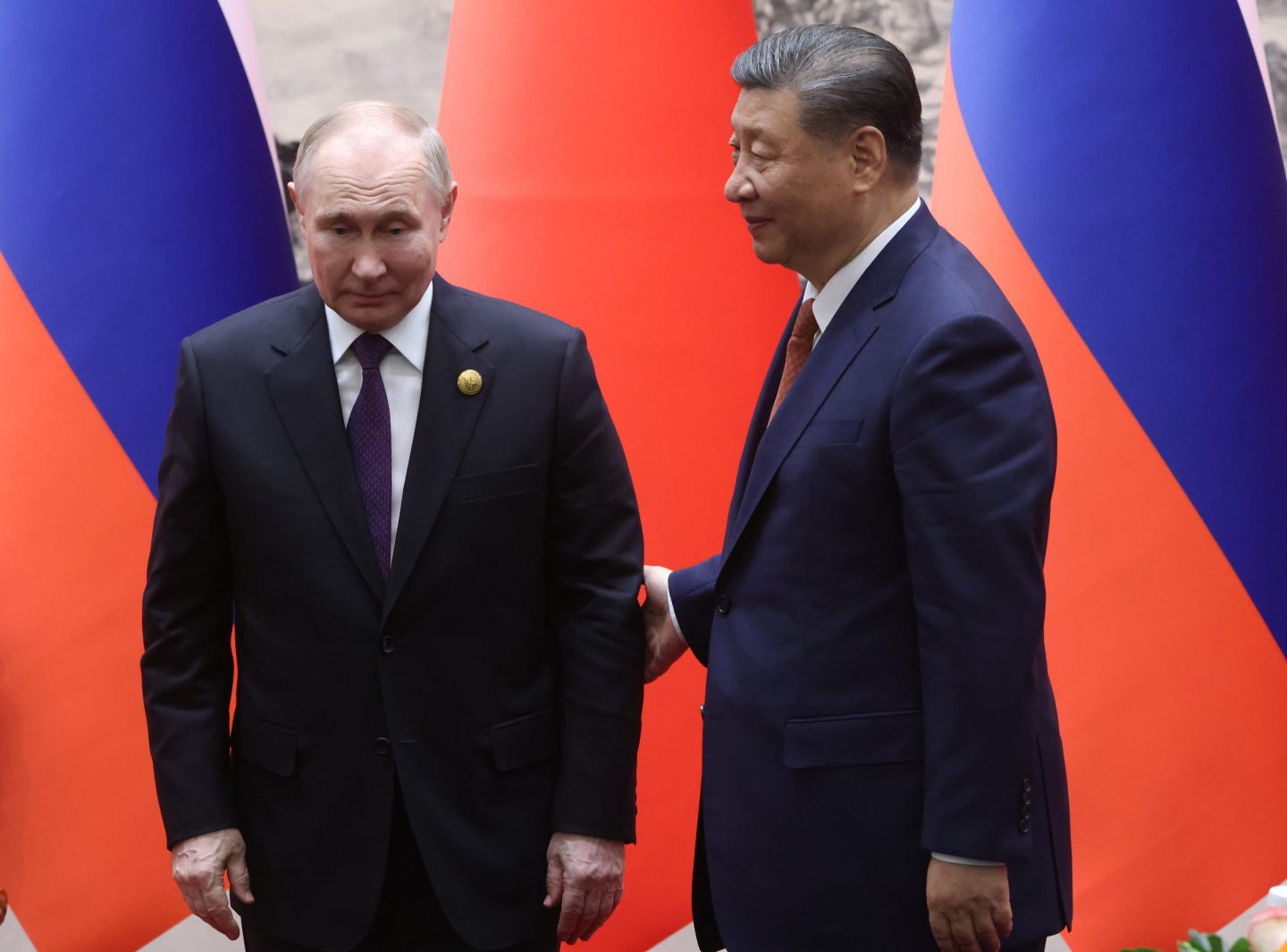China’s yuan is the most traded foreign currency in Russia, but its availability in the heavily sanctioned country may soon dry up.
That would threaten a critical lifeline for Russian businesses, which became heavily reliant on the yuan as trade with China ramped up after President Vladimir Putin ordered the invasion of Ukraine in 2022. The war triggered Western sanctions that largely shut out Russia from the global financial system.
In June, the U.S. expanded its sanctions, forcing the Moscow Exchange and its clearing agent to halt trading in dollars and euros. A Treasury Department license that allows time for some transactions to wind down will expire on Oct. 12.
While Russia had already shifted away from Western currencies in favor of the yuan, the additional U.S. sanctions could have spillover effects on Chinese banks that engage in yuan transactions with Russia.
“The situation may change after Oct. 12,” a source told Reuters. “An abrupt shortage of yuan or a complete refusal to accept payments from Russia by Chinese banks is possible.”
That’s because all conversion operations, including for Chinese banks’ subsidiaries, will stop, and all open foreign exchange positions via the Moscow Exchange will be closed, the report added.
“Accordingly, the situation with the supply of yuan liquidity will become even more difficult,” the source told Reuters.
On top of that, the Russian unit of Austria’s Raiffeisen Bank began refusing to make payments to China earlier this month, the report said.
Yuan liquidity in Russia was already under strain after the U.S. expanded its definition of Russia’s military industry earlier this year, widening the potential scope of Chinese firms that could get hit with secondary sanctions for doing business with Moscow.
As a result, Chinese banks have been reluctant to transfer yuan to Russian counterparts while servicing foreign trade payments, leaving transactions in limbo for months. With yuan liquidity drying up from China, Russian companies tapped the central bank for yuan via currency swaps.
But the Bank of Russia dashed hopes for more liquidity, saying that the swaps are meant only for short-term stabilization of the domestic currency market and are not a long-term source of funding.
Russian banks have more than halved their swap borrowings, which dropped to 15.4 billion yuan ($2.19 billion) on Wednesday from their high of 35.2 billion yuan in early September, according to Reuters.
“We cannot lend in yuan, because we have nothing to cover our foreign currency positions with,” German Gref, CEO of top Russian lender Sberbank, said at an economic forum earlier this month.
For now, Russia’s wartime spending as well as oil exports to China and India have helped prop up the overall economy. But the combination of busy factories and labor shortages due to military mobilizations have stoked more inflation. Meanwhile, Russia is suffering through a spiraling population crisis.
Researchers led by Yale’s Jeffrey Sonnenfeld warned in August that seemingly robust GDP data mask deeper problems in the economy.
“While the defense industry expands, Russian consumers are increasingly burdened with debt, potentially setting the stage for a looming crisis,” they wrote. “The excessive focus on military spending is crowding out productive investments in other sectors of the economy, stifling long-term growth prospects and innovation.”













